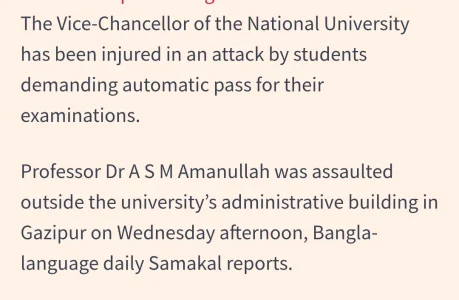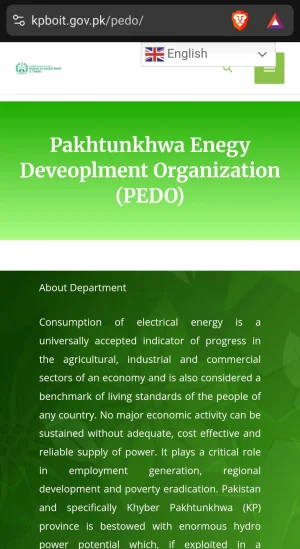You are using an out of date browser. It may not display this or other websites correctly.
You should upgrade or use an alternative browser.
You should upgrade or use an alternative browser.
Sinking State of Bangladesh: Idiotic Musings (5 Viewers)
- Thread starter fire starter
- Start date
More options
Who Replied?- Joined
- Jul 7, 2024
- Messages
- 516
- Likes
- 1,936
Rakhine to BD - Mauka Mauka
- Joined
- Jul 7, 2024
- Messages
- 516
- Likes
- 1,936

Bangladesh’s DGFI-backed portal proposes ‘encirclement of India’s northeast’
Bangladesh’s official intelligence and security community has proposed that the “establishment of a Rohingya Safe Zone” offers the Mohammad Yunus-lednenews.in
Dont they have unknown motorcyclists in BD?
- Joined
- May 8, 2025
- Messages
- 52
- Likes
- 537
BOSDINT
Bongs and Pakis have the most retarded naming sense. Imagine a title/name like bongabandhu being perceived as cool.
In early May, Adani Power's Chief Financial Officer Dilip Jha disclosed that Bangladesh owes approximately $0.9 billion for electricity supplied from the 1,600 MW Godda Plant in India's Jharkhand state. This follows a $1.2 billion payment made to Adani just last November. By June, the outstanding amount is projected to reach $1.3 billion, once again placing considerable pressure on the country's foreign currency reserves and raising serious questions about the wisdom of the deal.
One reason why the dues are mounting so quickly is the steep late payment fee, which reportedly stood at $136 million as of May 2025, accruing at an interest rate of 2.0 per cent per month. That's nearly 27 per cent annually, making it a penalty five times higher than typical global borrowing costs. With reserves already depleted to just over $20 billion following recent international payments, it is getting increasingly difficult for Bangladesh to sustain such costly terms.
The core issue, however, lies in the inflated cost of electricity itself. In fiscal year 2023-24, Bangladesh Power Development Board (BPDB) paid an average of Tk 14.87 per kilowatt-hour (kWh) to Adani, totalling over Tk 121 billion or around $1.0 billion. In contrast, other Indian suppliers charged significantly lower prices. NVVN Ltd charged around Tk 8.07 per kWh, Sembcorp Energy India Ltd Tk 10.42 and PTC India Ltd Tk 9.28. This puts Adani's tariff at least 30 per cent higher than comparable suppliers. The discrepancy becomes even more pronounced when compared to domestic projects such as the 1,200 MW Matarbari Coal-Fired Power Plant in Cox's Bazar, which has agreed to sell power to BPDB at just Tk 8.45 per kWh.

Adani Power and high cost of its electricity
The cost of keeping the lights on in Bangladesh is drawing ever more intense scrutiny, especially over electricity imported under the agreement with Adani Power. In early May, Adani Power's Chief Financial Officer Dilip Jha disclosed that Bangladesh owes approximately $0.9 billion for...
- Joined
- Jul 6, 2024
- Messages
- 1,136
- Likes
- 4,403
Reminds me ofBOSDINT
Bongs and Pakis have the most retarded naming sense. Imagine a title/name like bongabandhu being perceived as cool.
Research And Development International (RANDI) : by chongs and pakis.
Pakistan Institute of Strategic Studies (PISS)
- Joined
- Jul 2, 2024
- Messages
- 805
- Likes
- 2,185
Why not bothBy the way, is it just me or some of you too have sometimes misread the word 'Sinking' as 'Stinking' in the thread title??
- Joined
- Sep 29, 2024
- Messages
- 5,943
- Likes
- 32,100
By the way, is it just me or some of you too have sometimes misread the word 'Sinking' as 'Stinking' in the thread title??
Misread? nibba i want "Sinking" to be renamed to "Stinking" by mods
Misread? nibba i want "Sinking" to be renamed to "Stinking" by mods
Who can blame you??
No more corridor, for now

 nenews.in
nenews.in

‘No bloody corridor,’ Bangladesh Army chief Gen Waker-uz-Zaman cautions Yunus-led interim govt
Remaining firm on his stand that there will be no “humanitarian corridor” on the Bangladesh-Myanmar border, Bangladesh Army chief General
Chandan Nandy is so fast, BD media always so slowNo more corridor, for now

‘No bloody corridor,’ Bangladesh Army chief Gen Waker-uz-Zaman cautions Yunus-led interim govt
Remaining firm on his stand that there will be no “humanitarian corridor” on the Bangladesh-Myanmar border, Bangladesh Army chief Generalnenews.in
Hahahaha just Kanglu stuff


 thefinancialexpress.com.bd
thefinancialexpress.com.bd


National University VC injured in attack by students demanding ‘auto pass’
The Vice-Chancellor of the National University has been injured in an attack by students demanding automatic pass for their examinations. Professor Dr A S M Amanullah was assaulted outside the university’s administrative building in Gazipur on Wednesday afternoon, Bangla-language daily Samak
- Joined
- May 11, 2025
- Messages
- 234
- Likes
- 767

Bangladesh’s DGFI-backed portal proposes ‘encirclement of India’s northeast’
Bangladesh’s official intelligence and security community has proposed that the “establishment of a Rohingya Safe Zone” offers the Mohammad Yunus-led
It is baffling how these kanglu cretins are getting so brazen with their wet dreams. I display of power of some kind in required in the east to quieten the kanglus.
- Joined
- Jul 7, 2024
- Messages
- 516
- Likes
- 1,936
PBUP - Peace Be Upon Pedo!
Gazhwa-e-Imran's ass
Bunyan-ul-kacchha
Myanmar changs and northeast changs have burning genocidal hatred for kanglus
Bangladesh’s DGFI-backed portal proposes ‘encirclement of India’s northeast’
Bangladesh’s official intelligence and security community has proposed that the “establishment of a Rohingya Safe Zone” offers the Mohammad Yunus-lednenews.in
It is baffling how these kanglu cretins are getting so brazen with their wet dreams. I display of power of some kind in required in the east to quieten the kanglus.
Idk what the fuck they are talking about
- Joined
- Jul 1, 2024
- Messages
- 2,048
- Likes
- 12,240
He said they were detained by Indian authorities who bound their hands and feet and brought them to the border.
“Around midnight, they beat us and pushed us into the river. Before doing so, they tied empty plastic bottles around our waists so we would float to the border,” he said.

BGB rescues family of five on Khagrachhari border after ‘India push-in’
The family says they worked in a brickfield in India’s Haryana
Users who are viewing this thread
Total: 3 (members: 0, guests: 3)
Latest Replies
-
North East States: Law & Order
- crazywithmath
-
Operation Sindoor & Aftermath
- FalconSlayers
-
Naxal Maoist Insurgency
- Wayfarer
-
Indo EU Relations
- crazywithmath
-
Indian Special Forces
- COLDHEARTED AVIATOR
-
GTRE GTX 35VS Kaveri
- shade2
-
Indian Economy
- Psacha123



